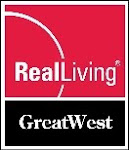Here is the final part in my short sale advise blog. It covers the application process for short sales and some other issues.
V. Short Sale Application Process and Other Issues
Q 20. What is the process for applying for a short sale?
A It is always in the best interest of the borrower to keep the lender informed. If the borrower is in default of the loan and is contemplating a short sale, it would be best for the borrower to let the lender know before the foreclosure proceedings are well under way. The lender may or may not grant more time to the borrower to find a buyer. In general, the process goes as follows:
· First, the borrower must find a buyer for the property.
· Second, the borrower must prepare all the necessary documents (See Question 17).
· Third, the borrower must submit all documents to the lender.
· Fourth, the lender will send out their own appraiser to make sure that the buyer's offer is at fair market value.
· Fifth, the lender will make a determination on whether or not to agree to the short sale.
Q 21. What documentation will a lender typically require?
A Lenders will typically require a distressed borrower to furnish a variety of documents, which could include the following:
· Written explanation (and proof) of the hardship the borrower is experiencing;
· Copy of the purchase contract signed by both the buyer and seller (borrower);
· Copy of the TDS;
· Proof of the buyer's ability to purchase the property, i.e., a completed loan application, pre-approval by another lender, or evidence of cash on hand (bank statement);
· Copy of the certified escrow instructions;
· Preliminary title report;
· Estimated net/closing statement certified by an escrow officer acceptable to the lender;
· Completed and signed IRS Form 4506, "Request for Copy of Tax Form;"
· Completed and signed personal financial worksheet;
· Previous two years tax returns;
· Employment paycheck stubs for the past two months;
· Profit and loss statement (if the borrower is self-employed);
· Past three months bank statements.
Q 22. Does C.A.R. provide any special forms for short sales?
A Yes. REALTORS® may use C.A.R. form SSL (Short Sale Listing Addendum) when they take the listing and C.A.R. form SSA (Short Sale Addendum) should be available shortly to be used with a purchase agreement.
Q 23. Where can I obtain additional information?
A You may consult the seller's lender directly about their policies and what is required to apply for a short sale of a property. The internal departments that handle short sales differ by lender. You may try asking for the problem loan department, loan workout department, loss mitigation department, or foreclosure department.
A You may consult the seller's lender directly about their policies and what is required to apply for a short sale of a property. The internal departments that handle short sales differ by lender. You may try asking for the problem loan department, loan workout department, loss mitigation department, or foreclosure department.
As always, feel free to ask a question or leave a comment below. Take care and see you next week.


